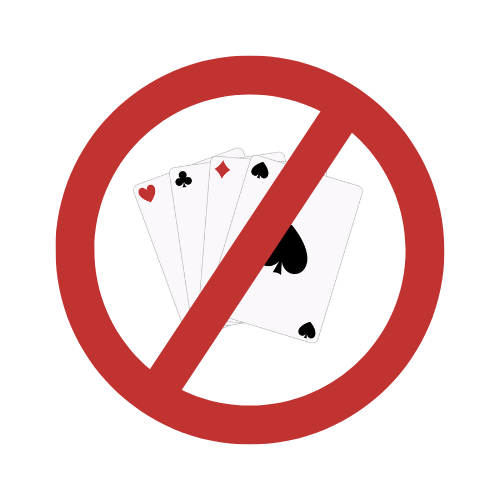How to Overcome Addiction: A Comprehensive Guide
Addiction is a challenging condition that affects individuals physically, mentally, and emotionally. Overcoming addiction is a multifaceted process that requires commitment, support, and effective strategies. This blog post outlines the steps and resources available for overcoming addiction in the UK, providing a roadmap for those seeking recovery.
Understanding Addiction
Addiction is a chronic disorder characterised by the compulsive use of substances or engagement in behaviours despite harmful consequences. It can involve drugs, alcohol, gambling, internet use, and more. Understanding the nature of addiction is crucial for addressing it effectively.
Acknowledging the Problem
The first step in overcoming addiction is acknowledging the problem. This involves recognising that substance use or a particular behaviour is having a detrimental impact on one’s life. Acceptance is a powerful catalyst for change and sets the stage for the recovery process.
Seeking Professional Help
Professional help is often necessary to overcome addiction. Various resources are available in the UK to support individuals on their recovery journey:
NHS Services
The NHS offers a range of services for those struggling with addiction, including:
- GP Consultations: Your GP can provide advice, prescribe medication, and refer you to specialist services.
- Specialist Addiction Services: These services offer comprehensive treatment plans, including detoxification, counselling, and rehabilitation programmes. You can find more information on the NHS website.
Private Treatment Centres
There are numerous private treatment centres across the UK that provide tailored programmes for addiction recovery. These centres often offer residential treatment, which can be particularly effective for severe addictions.
Developing a Support Network
A strong support network is vital for overcoming addiction. This can include family, friends, support groups, and healthcare professionals. Having a network of people who understand and support your recovery goals can provide motivation and encouragement.
Support Groups
Support groups offer a community of individuals who share similar experiences and challenges. Some well-known support groups in the UK include:
- Alcoholics Anonymous (AA): A fellowship of people who come together to share their experiences and support each other in staying sober. More information can be found on the AA website.
- Narcotics Anonymous (NA): Similar to AA, but focused on those recovering from drug addiction. Visit the NA UK website for more details.
- SMART Recovery: A science-based programme that provides tools and support for managing addictive behaviours. Learn more at SMART Recovery UK.
Behavioural Therapies
Behavioural therapies are a cornerstone of addiction treatment. These therapies help individuals understand and change the patterns of behaviour that contribute to their addiction.
Cognitive Behavioural Therapy (CBT)
CBT is widely used in treating addiction. It focuses on identifying and altering negative thought patterns and behaviours. CBT helps individuals develop coping strategies and problem-solving skills, making it easier to manage triggers and avoid relapse.
Motivational Interviewing
Motivational interviewing is a counselling approach that helps individuals resolve ambivalence about change. It encourages people to talk about their reasons for wanting to change and supports them in building the motivation needed to pursue recovery.
Medication-Assisted Treatment (MAT)
For some types of addiction, medication can be an effective component of treatment. MAT combines medication with counselling and behavioural therapies to treat substance use disorders.
Opioid Addiction
Medications such as methadone, buprenorphine, and naltrexone can help manage opioid addiction by reducing cravings and withdrawal symptoms. These medications are typically provided through specialist addiction services.
Alcohol Addiction
Medications like disulfiram, acamprosate, and naltrexone can assist in managing alcohol addiction. They work by reducing cravings or causing adverse reactions to alcohol, thus discouraging drinking.
Lifestyle Changes
Making positive lifestyle changes can significantly support the recovery process. These changes include:
Healthy Eating and Exercise
A balanced diet and regular exercise can improve physical health, boost mood, and reduce stress. These factors are important in maintaining overall well-being and supporting recovery.
Mindfulness and Stress Management
Practising mindfulness and stress management techniques can help individuals manage triggers and reduce the risk of relapse. Techniques such as meditation, yoga, and deep breathing exercises can be beneficial.
Avoiding Triggers
Identifying and avoiding triggers is crucial in preventing relapse. Triggers can be people, places, or situations that prompt the desire to engage in addictive behaviour. Developing strategies to cope with or avoid these triggers is essential for maintaining sobriety.
Long-Term Recovery and Relapse Prevention
Recovery is an ongoing process that requires long-term commitment. Relapse prevention strategies are crucial in maintaining sobriety and include:
- Continued Therapy: Ongoing counselling or therapy sessions can provide continuous support and address any emerging issues.
- Regular Support Group Meetings: Continued participation in support groups can help maintain motivation and provide a sense of community.
- Setting Goals: Setting and working towards personal goals can provide purpose and direction in recovery.
Conclusion
Overcoming addiction is a challenging but achievable goal. With the right support, resources, and strategies, individuals can regain control of their lives and achieve lasting recovery. In the UK, numerous services and support systems are available to assist those struggling with addiction. By taking the first step to acknowledge the problem and seek help, individuals can embark on a journey towards a healthier, more fulfilling life.
For more information and resources, visit the following links:
